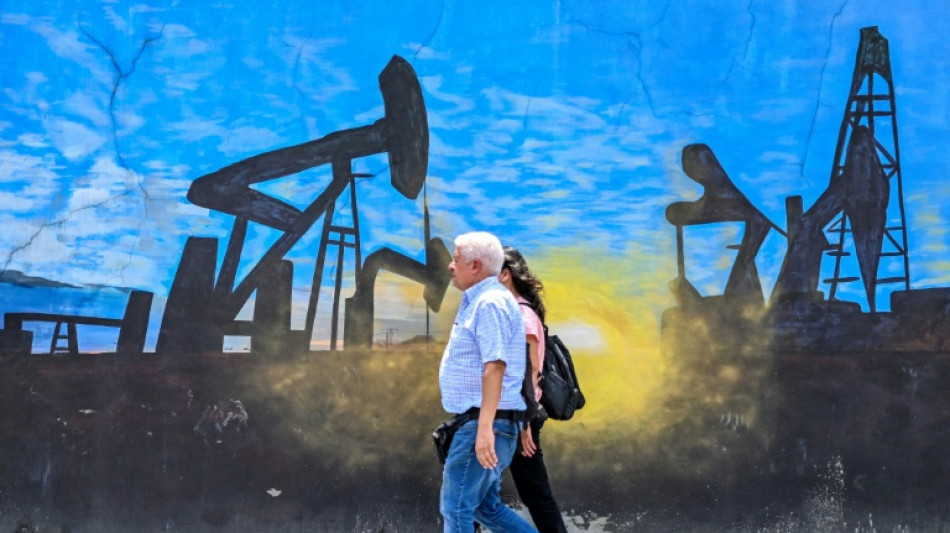
-
 Greece to spend 25 bn euros in 'drastic' defence overhaul: PM
Greece to spend 25 bn euros in 'drastic' defence overhaul: PM
-
Maresca non-committal over Sancho's future at Chelsea

-
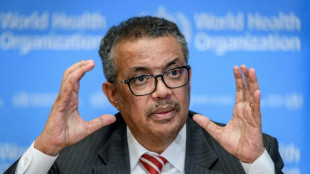 WHO facing $2.5-bn gap even after slashing budget: report
WHO facing $2.5-bn gap even after slashing budget: report
-
Real Madrid coach Ancelotti tells tax trial did not seek to defraud
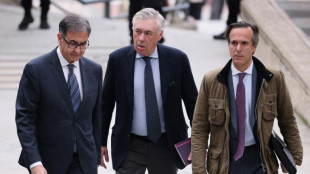
-
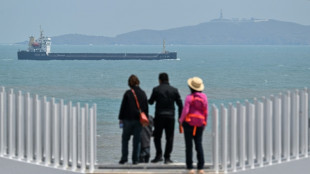 Chinese tourists pine for Taiwan's return as Beijing jets surround island
Chinese tourists pine for Taiwan's return as Beijing jets surround island
-
Singapore detains teenage boy allegedly planning to kill Muslims
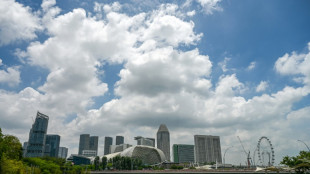
-
 What is the 'Qatargate' scandal roiling Israel?
What is the 'Qatargate' scandal roiling Israel?
-
AI coming for anime but Ghibli's Miyazaki irreplaceable, son says

-
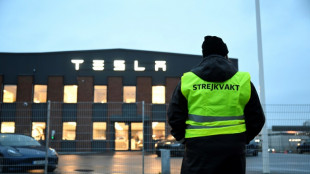 Swedish insurer drops $160 mn Tesla stake over labour rights
Swedish insurer drops $160 mn Tesla stake over labour rights
-
Hunger returns to Gaza as Israeli blockade forces bakeries shut
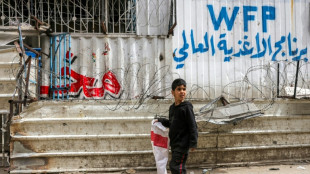
-
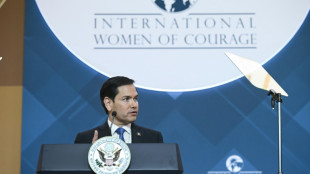 Rubio heads to Europe as transatlantic tensions soar
Rubio heads to Europe as transatlantic tensions soar
-
Like 'living in hell': Quake-hit Mandalay monastery clears away rubble

-
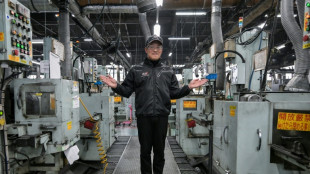 'Give me a break': Trump tariffs threaten Japan auto sector
'Give me a break': Trump tariffs threaten Japan auto sector
-
US approves $5.58 bn fighter jet sale to Philippines

-
 Tsunoda embracing pressure of Red Bull debut at home Japanese GP
Tsunoda embracing pressure of Red Bull debut at home Japanese GP
-
'Outstanding' Hay shines as New Zealand seal Pakistan ODI series

-
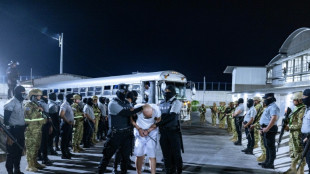 El Salvador's Bukele flaunts 'iron fist' alliance with Trump
El Salvador's Bukele flaunts 'iron fist' alliance with Trump
-
Stock markets mixed as uncertainty rules ahead of Trump tariffs
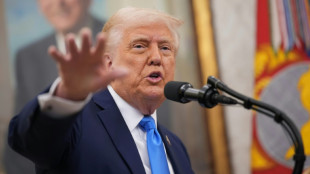
-
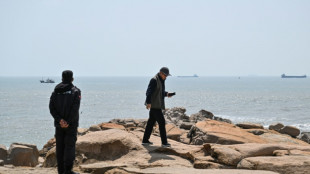 China probes for key target weak spots with 'paralysing' Taiwan drills
China probes for key target weak spots with 'paralysing' Taiwan drills
-
'Top Gun' and Batman star Val Kilmer dies aged 65: New York Times

-
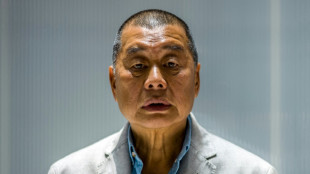 US lawmakers seek to rename street for Hong Kong's jailed Jimmy Lai
US lawmakers seek to rename street for Hong Kong's jailed Jimmy Lai
-
Greece to spend big on 'historic' military shake up

-
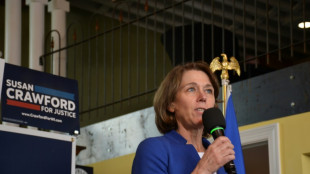 Trump faces first electoral setback after Wisconsin Supreme Court vote
Trump faces first electoral setback after Wisconsin Supreme Court vote
-
Hay shines as New Zealand beat Pakistan for ODI series win

-
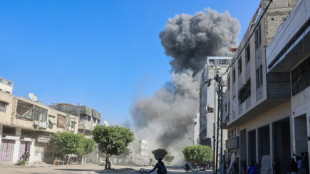 Israel says expands Gaza offensive to seize 'large areas'
Israel says expands Gaza offensive to seize 'large areas'
-
Curry drops 52 as Warriors win, Jokic bags career-high 61 in Denver loss
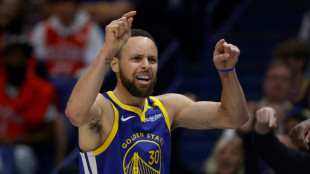
-
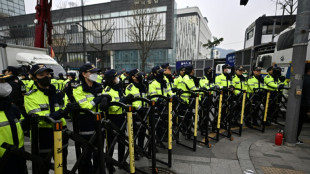 South Korea mobilising 'all resources' for violence-free Yoon verdict
South Korea mobilising 'all resources' for violence-free Yoon verdict
-
Myanmar quake victim rescued after 5 days as aid calls grow

-
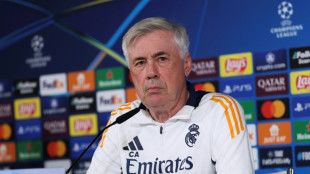 Real Madrid coach Ancelotti tax fraud trial set to begin
Real Madrid coach Ancelotti tax fraud trial set to begin
-
Warner showcases 'Superman' reboot, new DiCaprio film

-
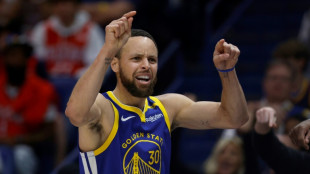 'Incredible' Curry scores 52 as Warriors down Grizzlies, Bucks edge Suns
'Incredible' Curry scores 52 as Warriors down Grizzlies, Bucks edge Suns
-
Asian markets edge up but uncertainty rules ahead of Trump tariffs
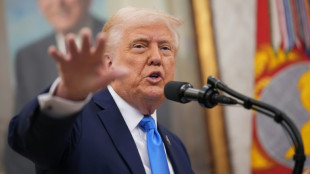
-
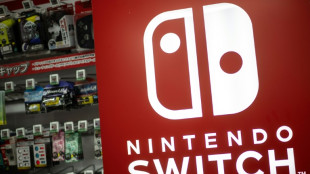 Nintendo's megahit Switch console: what to know
Nintendo's megahit Switch console: what to know
-
Nintendo to unveil upgrade to best-selling Switch console
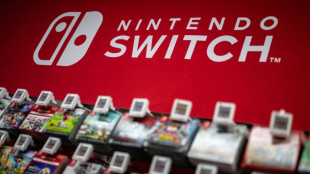
-
 China practises hitting key ports, energy sites in Taiwan drills
China practises hitting key ports, energy sites in Taiwan drills
-
Oil, sand and speed: Saudi gearheads take on towering dunes

-
 All eyes on Tsunoda at Japan GP after ruthless Red Bull move
All eyes on Tsunoda at Japan GP after ruthless Red Bull move
-
'Image whisperers' bring vision to the blind at Red Cross museum
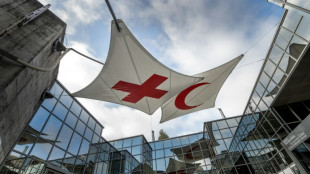
-
 Hay shines as New Zealand make 292-8 in Pakistan ODI
Hay shines as New Zealand make 292-8 in Pakistan ODI
-
Other governments 'weaponising' Trump language to attack NGOs: rights groups
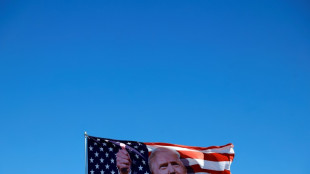
-
 UK imposes online entry permit on European visitors
UK imposes online entry permit on European visitors
-
How a Brazilian chief is staving off Amazon destruction

-
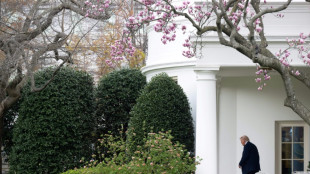 Meme politics: White House embraces aggressive alt-right online culture
Meme politics: White House embraces aggressive alt-right online culture
-
China launches military drills in Taiwan Strait

-
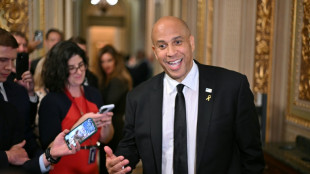 US senator smashes record with 25-hour anti-Trump speech
US senator smashes record with 25-hour anti-Trump speech
-
Brazil binman finds newborn baby on garbage route

-
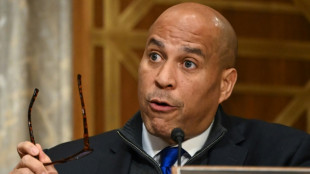 US senator smashes record with marathon anti-Trump speech
US senator smashes record with marathon anti-Trump speech
-
Trump advisor Waltz faces new pressure over Gmail usage
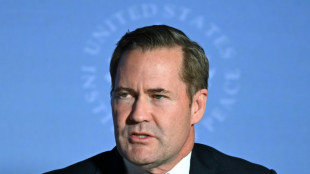
-
 NHI Announces $63.5 Million Senior Housing Investment
NHI Announces $63.5 Million Senior Housing Investment
-
Miami Church Covers 100% of Uber Rides to Easter Service-Tips Included


What next for Venezuela as Trump goes after oil revenues?
President Donald Trump has revoked the licenses that allowed several transnational oil and gas companies to operate in Venezuela despite the country being under US sanctions.
After US energy giant Chevron, Washington has ordered a handful of other energy firms, including Spain's Repsol and France's Maurel & Prom, to cease operating in Venezuela.
Trump, who is seeking to force out authoritarian President Nicolas Maduro, has also announced plans for 25 percent tariffs on imports from any country buying Venezuelan oil and gas.
What's next for the struggling Caribbean country, which has the world's largest-known oil reserves but has become increasingly isolated since July 2024 elections that President Nicolas Maduro is accused of stealing?
- Will the oil stop flowing? -
In 2019, during his first term in office, Trump imposed an embargo on Venezuelan oil in response to 2018 elections that were already marred by fraud allegations.
Venezuela's state-owned PDVSA oil giant was in freefall at the time, beset by corruption scandals, mismanagement and a crippling lack of investment.
Oil output buckled under the weight of the sanctions, falling from around three million barrels per day at the start of the 2000s to below 400,000 b/d in 2020.
The sector recovered some ground after former US president Joe Biden in 2022 eased the sanctions in return for a promise by Maduro to allow fair elections.
Biden later reimposed most sanctions when it became clear that Maduro was not keeping his side of the bargain, but allowed Chevron to continue operations.
Today, Venezuela produces around 900,000 barrels per day of which Chevron contributes about 220,000, Repsol about 60,000, and Maurel & Prom between 20,000 and 25,000.
Washington has given Chevron and the other companies until May 27 to wind up their operations.
"PDVSA ...now has some operational capacity, although we don't know how big it is," Gilberto Morillo, PDVSA's former financial manager told AFP.
- Who will buy it? -
Even if PDVSA manages to keep pumping oil, finding a way to monetize it "is another matter," Morillo said, pointing to the threatened 25-percent US tariffs on countries that buy its crude.
In February, Venezuela exported approximately 500,000 barrels per day to China, 240,000 to the United States, and 70,000 to India and Spain.
In the past, sanctions forced PDVSA to discount the oil and to find partners to circumvent the sanctions.
Caracas also attempted to trade crude oil through a cryptocurrency scheme, which ended with then oil minister Tareck El Aissami being jailed for corruption in a case that cost the country more than $15 billion, according to media reports.
- What impact for the economy? -
The situation looks set to pile further misery on an economy already in tatters.
The price of dollars has soared on the black market as Venezuelans fear falling oil revenue will trigger another bout of hyperinflation and a return to the kind of deep recession the country experienced between 2014 and 2021.
The forced pullout of gas producers could also have an impact on the country's crumbling energy infrastructure, leading to more blackouts.
Repsol pointed out that 85 percent of its operations in Venezuela were related to the production of natural gas, which it warned "supports part of the electricity network."
The cancellation of the licenses will prevent PDVSA from using oil to pay the foreign energy companies for gas, as it had been doing, Morillo explained.
"If PDVSA can't pay them, then it generates a debt," he said.
But if the energy firms decide "ok, we'll close down and leave...they would lose their entire investment," he argued.
L.Davis--AMWN